Feasibility study: Community energy in the City of Židlochovice, Czech Republic
Keywords: citizen energy, climate protection, communication, participation, feasibility study
Subject and goals of the project
The town of Židlochovice is a small town in the Brno-Venkov district in the South Moravian Region. Around 3,800 inhabitants live here. The city administration is striving for sustainable development, such as a new railroad line with a terminal station and innovative waste management. The latest plans focus on the EU target of a 55% greenhouse gas reduction by 2030 and the adoption of a common approach to climate change mitigation and adaptation – the city of Źidlochovice joined the Covenant of Mayors for Climate and Energy initiative.
To achieve the necessary CO2 savings, the generation of electricity from renewable energies is of central importance. In order to achieve optimal use of renewable energies, it seems desirable to create an energy community of citizens in which the electricity generated for their own consumption is shared.
The aim of the requested feasibility study was to prepare and evaluate a complex community energy concept in the Czech Republic in the small southern Moravian town of Židlochovice in a new “positive energy district Chytre Lichy”. Citizens, public administration, SMEs, non-governmental organizations, municipal organizations and other stakeholders should be given the opportunity to participate in the design of the community energy grid. The needs and expectations of citizens should be given special consideration in order to promote their participation in the municipal energy system. The results were presented to the secondary target group, which includes municipalities, investors, government organizations (such as the Energy Regulatory Authority and the Ministry of the Environment) and non-governmental organizations, as part of the communication measures for the project. The findings from the project were prepared as a case study and methodology for municipalities in the Czech Republic in the sense of a model solution.
The content areas of the feasibility study included:
- Analysis of the target group,
- Analysis of energy management models (e.g. local distribution system, energy cooperative, microgrid) in the Chytre Lichy district,
- Analysis and design of the potential legal and organizational form of community energy (e.g. cooperative, public/private company),
- Analysis and design of the technical solution for the connection to the municipal energy grid,
- Design of the energy system of the new Chytre Lichy district.
You can find the feasibility study here.
The feasibility study will enable the town of Židlochovice to implement the pilot community energy network in the planned Chytre Lichy district and the town of Židlochovice in order to achieve the target set by the municipality – 55% CO2 savings by 2030. Participatory events with the public and consultations with experts in planning and environmental law, energy efficiency, energy grids and renewable energies formed the essential basis for this. Round table discussions, a workshop and already established channels of the city of Židlochovice and the project partners were used as means of communication to address the target groups (including a. City newspaper, social media and web presences – see chytrelichy.cz and jinag.eu).
A three-day excursion to Germany (Ursensollen, Ansbach, Limburgerhof, Freiburg im Breisgau) to see examples of good practice was organized for interested experts.
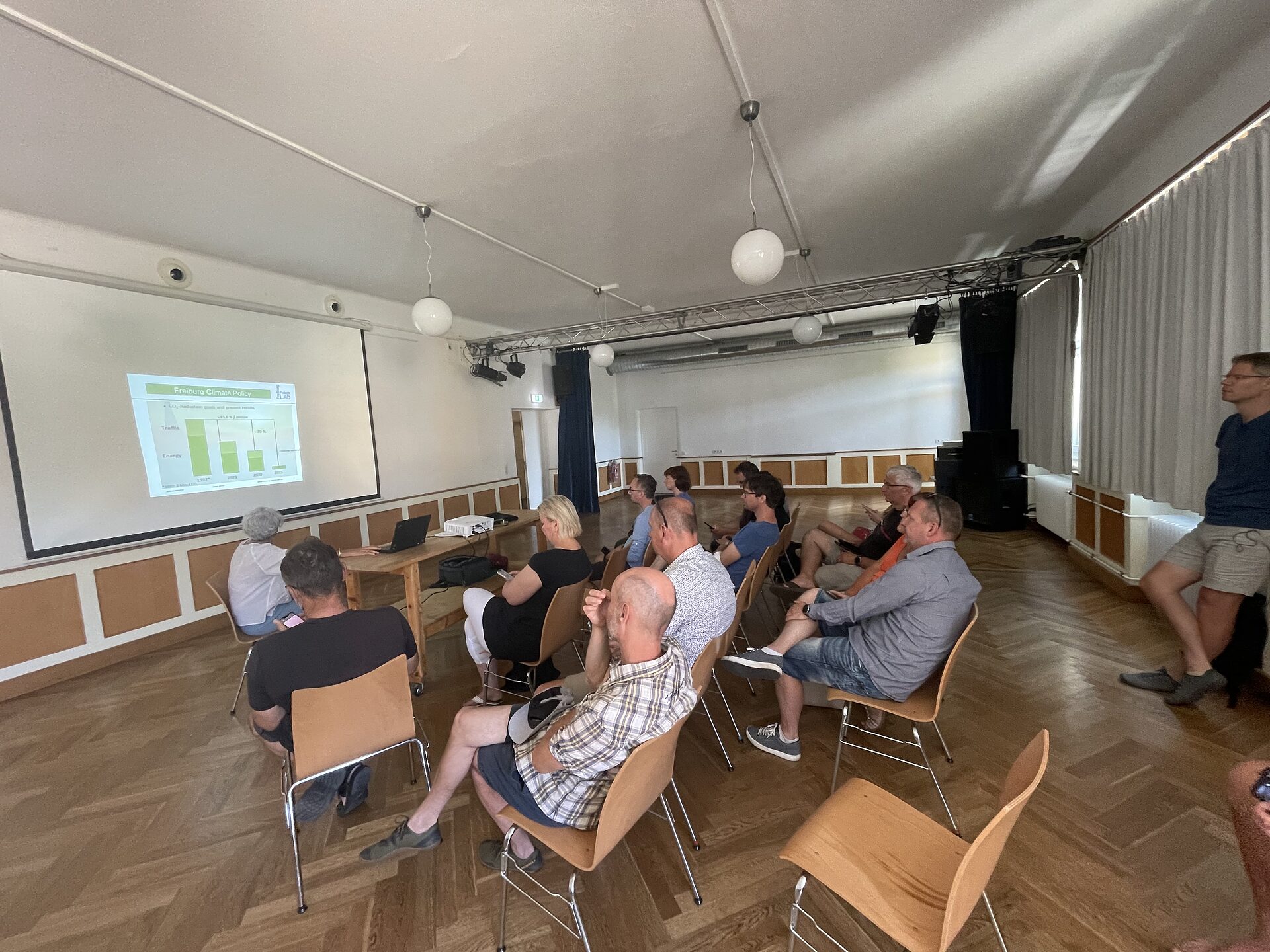
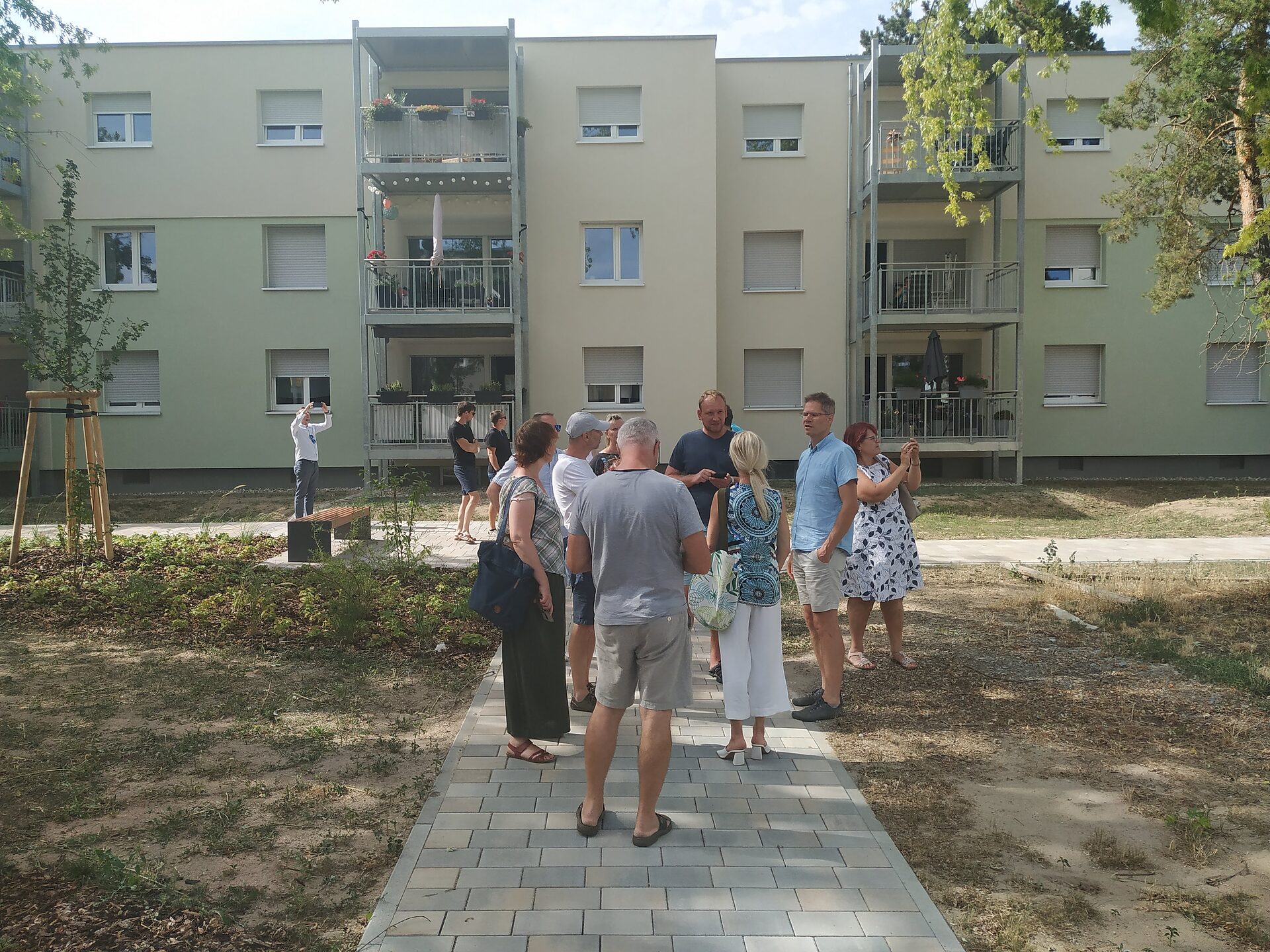
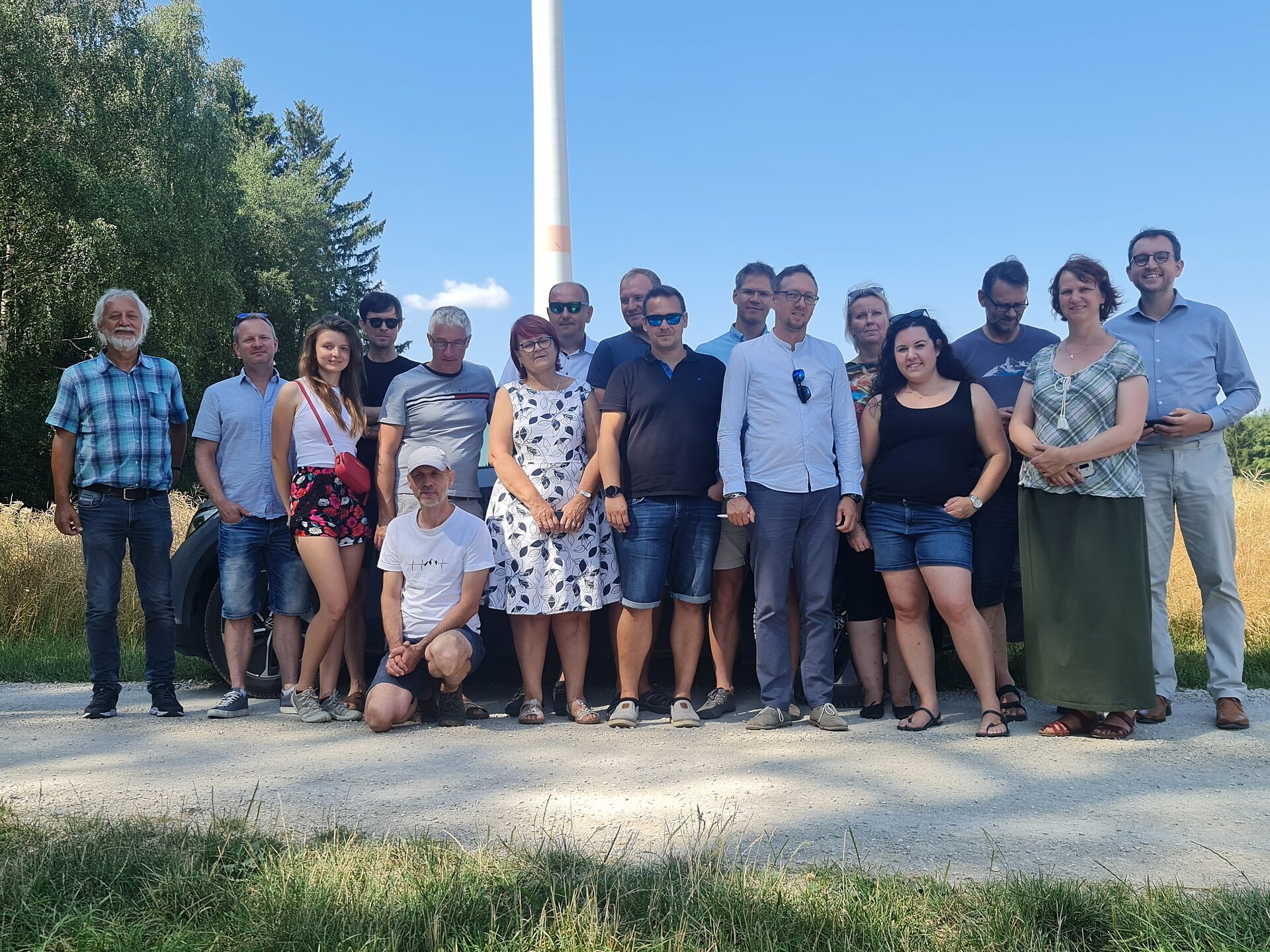
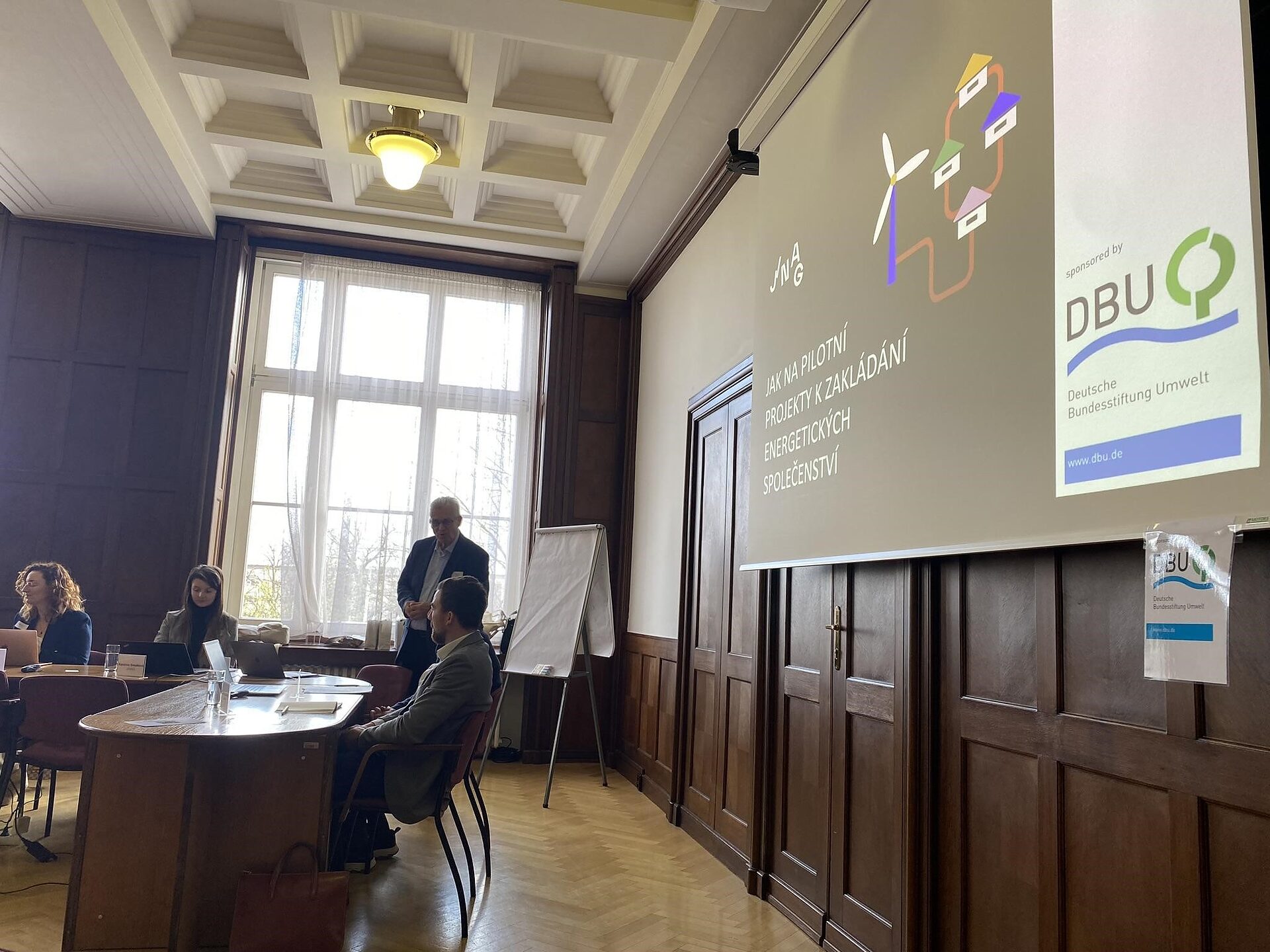
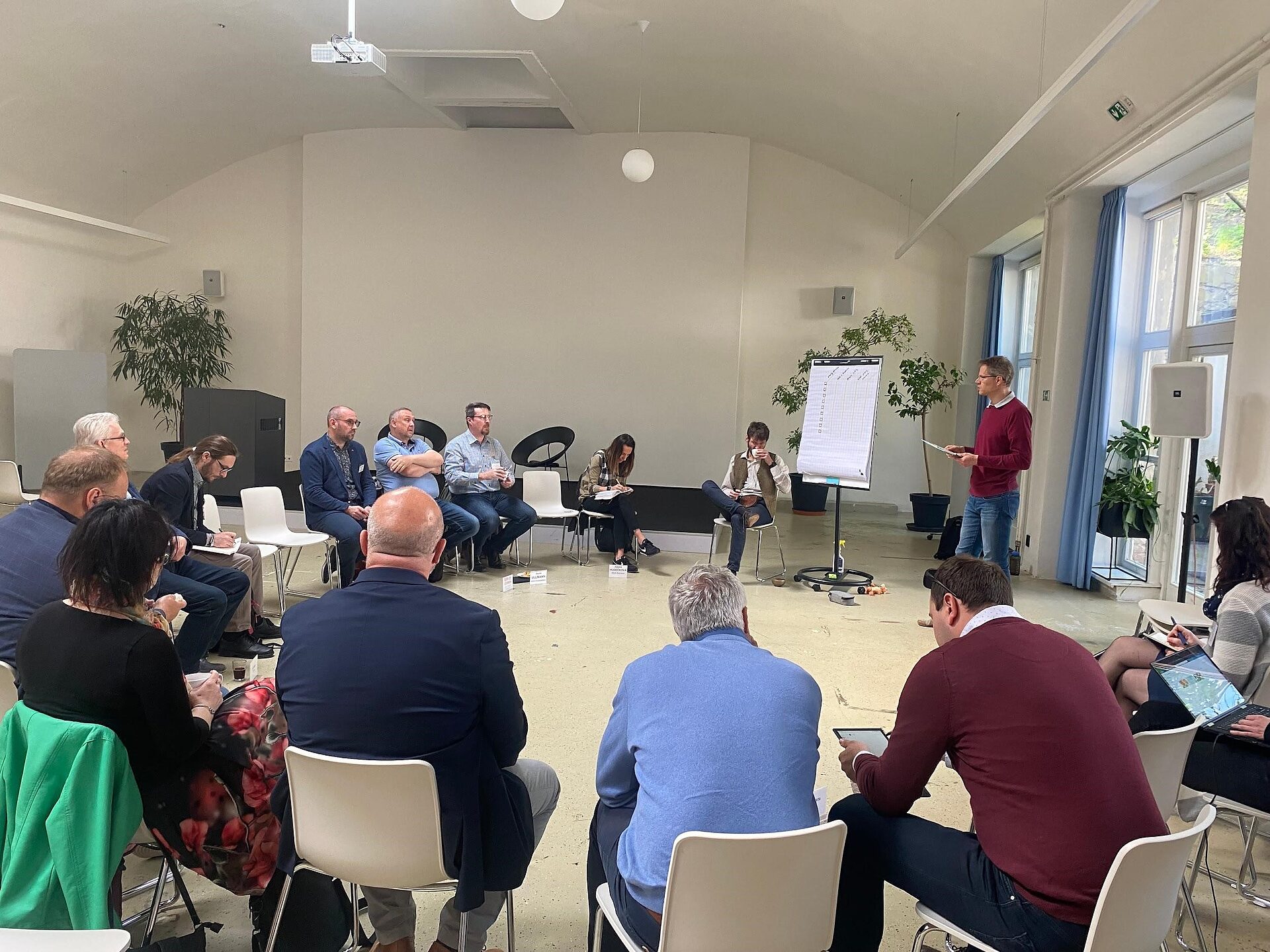
Innovation and exemplary nature of the project
The results of the project will serve as an example and inspiration for the establishment of local energy communities. Civic energy is still in its infancy in the Czech Republic. There is little or no practical experience. The innovation of the project lies in the clarification of conditions for the direct shared use of the generated electricity by the individual members of the energy community via the public distribution grid, taking into account the stability and security of the distribution grid. The results of the feasibility study are potentially suitable for initiating community energy projects in other locations as well.
The project serves as a pilot project to demonstrate best practice with the aim of inspiring other municipalities and investors planning similar development projects. Many municipalities are interested in the topic of community energy: for example, according to a survey of mayors of municipalities in the South Moravia region, almost 60% of respondents stated that they are considering a community energy project or have already started preparations (internal survey by JINAG in September 2022).
Special aspects of the project
In the course of preparing the feasibility study, talks were initiated with the energy regulatory authority to develop the “Positive Energy District Chytre Lichy” project into a pilot project for testing new distribution tariffs, which were prepared in connection with the amendment to the Energy Act.
The results of the feasibility study were also used in the argumentation for the opinion on the amendment to the Energy Act, especially by the cooperating Czech Association for Civic Energy.
Funding theme 6: Renewable energy, energy saving and efficiency
Project Implementation:
Place of activity: Czech Republic
Funding period: January 2023 to July 2023
Project costs: Total volume: 49,061 euros, funding from DBU: 49,061 euros
DBU-AZ: 38614
Status: 27.02.2024
Pictures: © JINAG